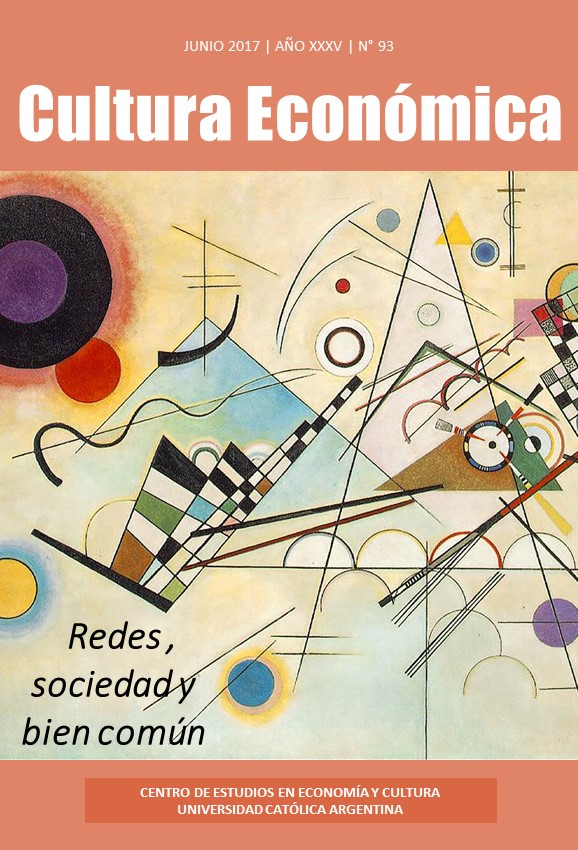Democracy, Common Good and Commons
Keywords:
DEMOCRACY, COMMON GOOD, COMMONS, PUBLIC CHOICEAbstract
The article presents the idea of democracy in relation to the idea of Common Good, from the perspective of several authors. The aim is to investigate the way in which different conceptions of Common Good affect the definition of democracy, by establishing its limits and virtues. Then, it discusses the definition of common goods from the scope of Public Choice, assessing whether democracy can be understood as a common good, and to what extent this contribution dialogues with the authors studied in the first partDownloads
References
Aristóteles (2012). Política. Alianza Editorial, Madrid.
Axelrod, R. (1984). The Evolution of Cooperation. Basic Books, Nueva York.
Hardin, G. (1967). “The tragedy of the commons”, en Science, New Series, Vol. 162 N°3859, pp.1243-1248.
Habermas, J. (1999). La inclusión del otro. Paidós, Buenos Aires.
Olson, Marcur (1965). The Logic of Collective Action: Public Goods and the Theory of Groups. Harvard University Press, Cambridgde, MS.
Ostrom, E. (1990). Governing the Commons: The Evolution of Institutions for Collective Action. Cambridge University Press, Cambridge.
Rawls, J. (2001). El derecho de gentes. Editorial Paidós, Buenos Aires.
Schumpeter, J. (1963). Capitalismo, Socialismo y Democracia. Editorial Aguilar, México.
Smith, A. (2003, [1776]) The Wealth of Nations. Bantam Classics, New York.
Zamagni, S. (2014). “Bienes comunes y economía civil”, en revista Cultura Económica, Año XXXII, N°87.
Downloads
Published
How to Cite
Issue
Section
License













